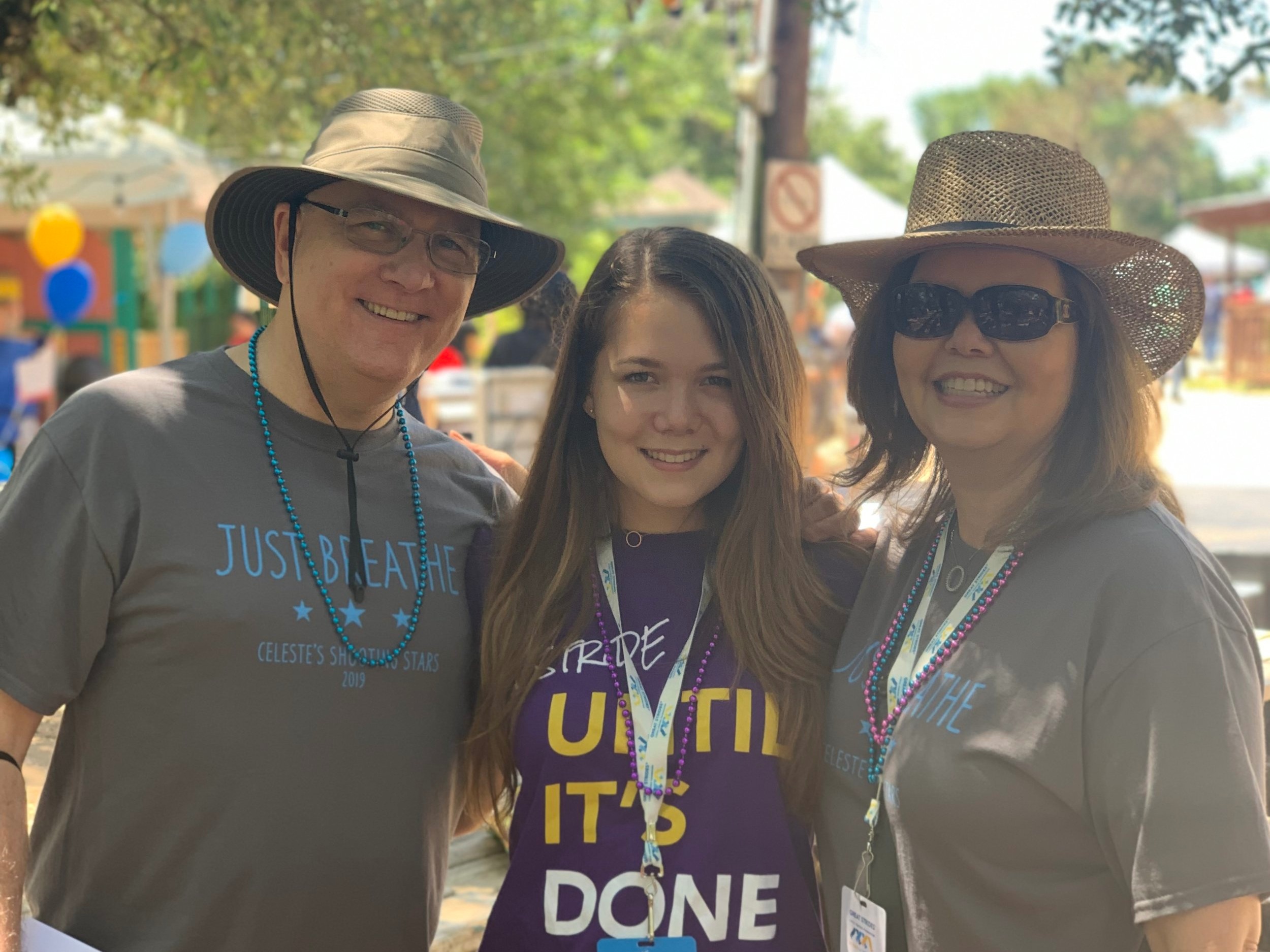Celeste's Transition to College
Celeste, our Clinic Project Coordinator Intern, talks about her experience with transitioning to college with cystic fibrosis.
I’m now two years in at my university, so I believe I can now confidently reflect on my transition and how my family structure set me up for success as well as on what I failed to manage my first year.
During my high school days, my parents were very involved in my health, but they compelled me to hold the reins. I saw the seriousness and inquisitive attitude they brought to every clinic visit, and that, of course, spread to me. They understood that I wouldn’t be relying on them to set up doctor’s visits, or making big decisions regarding my cystic fibrosis.
Throughout my youth and adolescence, my parents were incrementally passing the baton of responsibility to me. Small increases in responsibility over a long period of time seems more manageable than a huge increase in responsibility all at once. The progression worked; to the point where I even got upset when my dad intervened on my nebulizer sterilizing schedule. So, when I turned eighteen in February of my senior year, all responsibility, besides financial, was left on my shoulders... and I was 100% comfortable. This gave me a half-year long “trial-run” before college, during which I called in all medications, set up appointments, made decisions, and went to the doctor on my own. With my parents assisting me, that six months was the perfect amount of time to instill confidence in me on what I was going to manage when I was independent. Granted, I know we can’t control our birthdays, but a trial period was helpful, because it wasn’t a new change on top of college transition.
“They compelled me to hold the reins”
My transition was easier than most, as I was moving only ten miles away, to central Austin. Several of my friends were going to UT with me, and I quickly met new people at Camp Texas, and I joined a sorority, so I was fortunate enough to feel comfortable, socially. My clinic and providers did change; however, because the Dell Pediatric CF Center separated into an adult clinic and a pediatric clinic. I had registered with Services for Students with Disabilities to get a single room and private bathroom, along with flex attendance and deadlines, in case of emergencies. I managed to find a pharmacy near campus and found that it was easy for me to find time to fit in calls to pharmacies, insurance companies, appointments and to do treatments on my own. I fully attribute that to my own strong role in my health while I was still transitioning under my parents’ roof.
College life with CF wasn’t completely without bumps in the road, though. I found that by the end of each day, I was exhausted and less motivated to work out like I was in high school. I was eating healthy and my weight was maintained, but during my second semester I had done little cardio. Going to seventeen hours worth of classes, studying and socializing while managing my CF was draining and left me with little energy to go for a run or vigorous bike ride. Occasionally, I had to turn in assignments late, because I was so tired.
Time management began to play a stronger role in my life. By my sophomore year, I was able to be more efficient with my time with Folia Health and my school planner. I felt more in control of my life and my information. Balancing my social life, education and health was becoming easier every day. Finding a schedule and system that works for you is essential to be the best in every path of life.
Overall, what I would suggest for other college-bound CFers and their family is: CFers, be assertive, because you are the only one who can advocate for you. And caregivers, don’t be afraid to give and maintain trust; gradual transfer of responsibility is, in my opinion, the key to producing a successful transition. College is a great time for learning and self discovery, and it is pivotal for CF-adulting. So start making good habits now that will translate to a lifetime of initiative.



